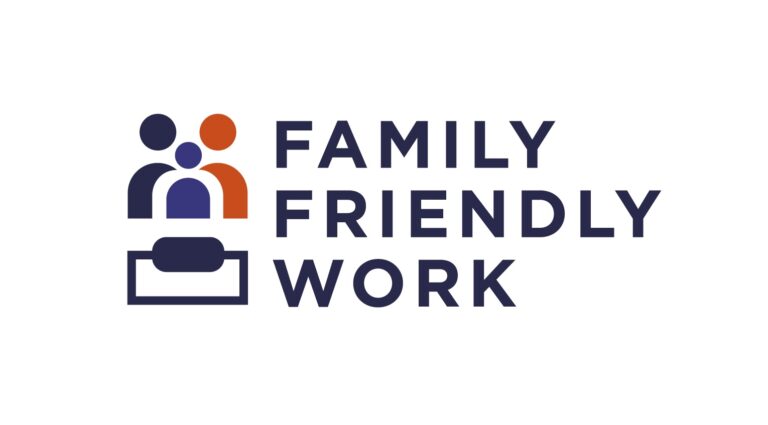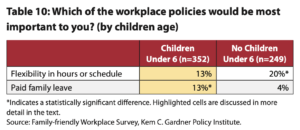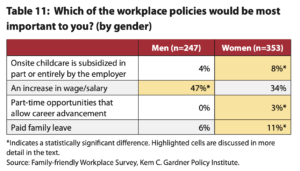A majority of Utah parents with children under the age of 12 work full-time and believe there are a number of policies employers could offer that would support them in getting closer to their ideal balance between paid work and childcare. For employers wanting to support their employees, this article derived from a report from the Kem C. Gardner Policy Institute provides insight into supportive policies that attract different demographics of working parents.
Thanks to recent statewide statistics, Utah employers know that supportive workplace policies matter when looking to employ and retain working parents. However, because all parents are different, their policy preferences are also different.
Data shows that the level of preference for certain employer policies vary significantly between respondents with different characteristics, such as gender, whether there are children under age six in the household, employment status and industry or sector of employment.
For example, when respondents were asked what workplace policy was most important, those with children under the age of six were more likely to choose paid leave. Additionally, women were more likely than men to choose the following workplace policies as most important: onsite childcare subsidized in part or entirely by the employer, part-time job opportunities that allow career advancement, and paid family leave. Men were more likely to choose an increase in wage or salary.
Finally, responses also differed significantly depending on job sector. Respondents working in the hospitality sector were more likely to rate better paying part-time job opportunities as important, professional/business service sector respondents were more likely to choose remote work and healthcare/public administration respondents more often chose subsidized onsite childcare and flex child care spending accounts.
These varying preferences and demographics showcase a labor pool motivated to consider supportive family-friendly employer policies and workplace culture in their decision-making regarding how much to work and whether to change jobs. This information empowers employers to consider a wide variety of policy tools. By making an effort to support working parents, employers can improve both workplace culture and Utah families in the process.
For more information on family-friendly policies, visit the Utah Community Builders website.




